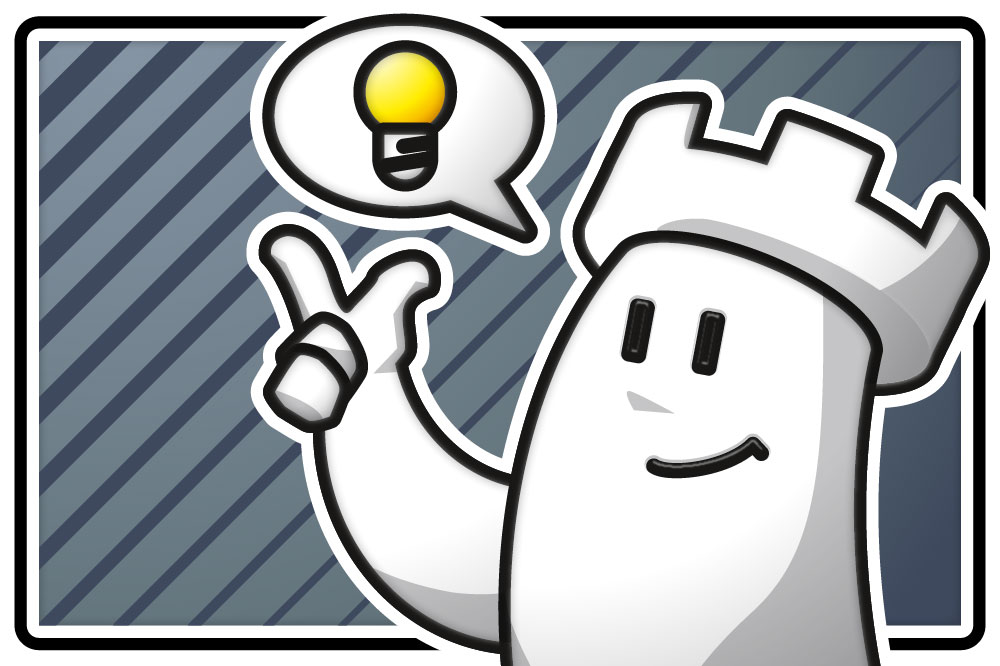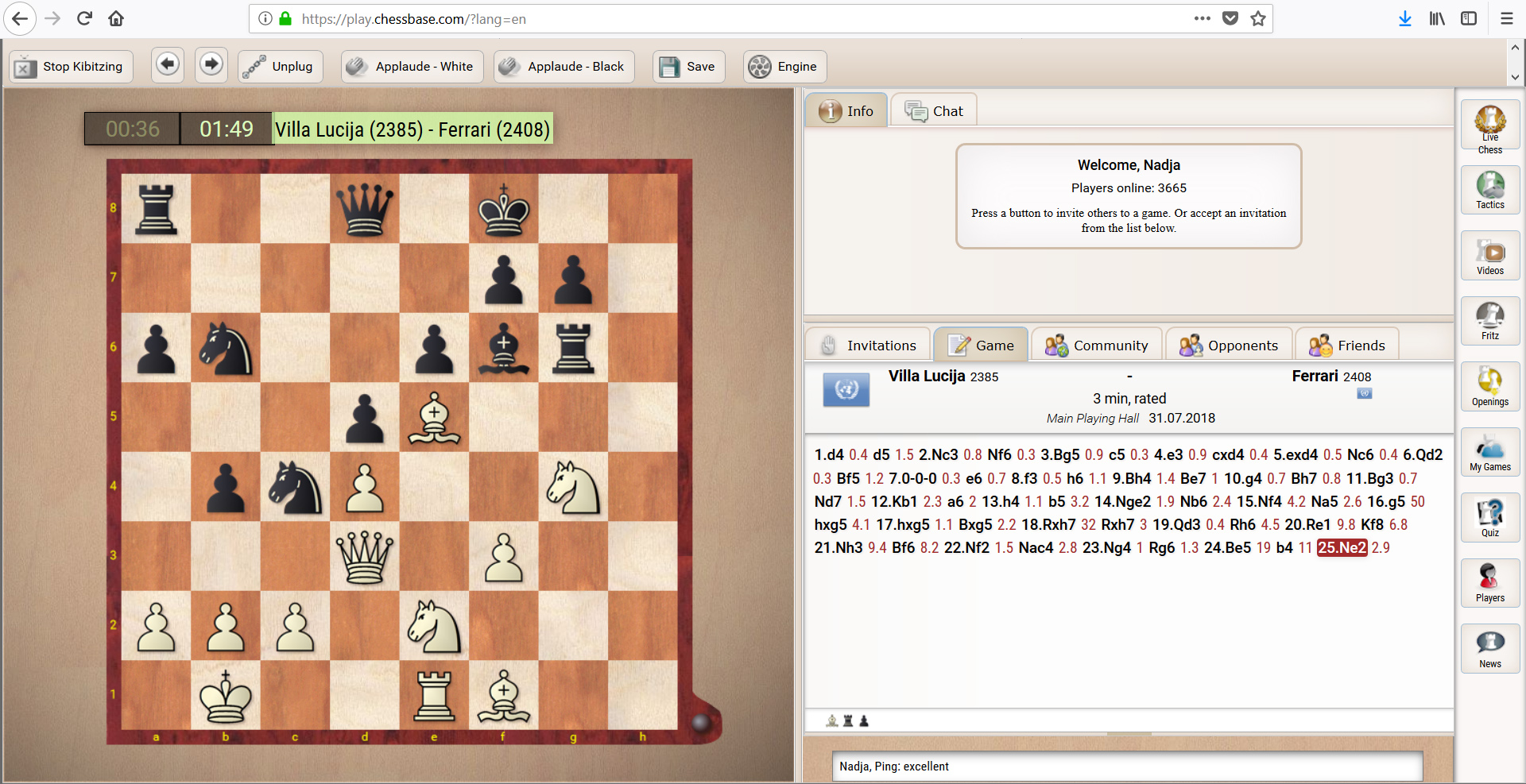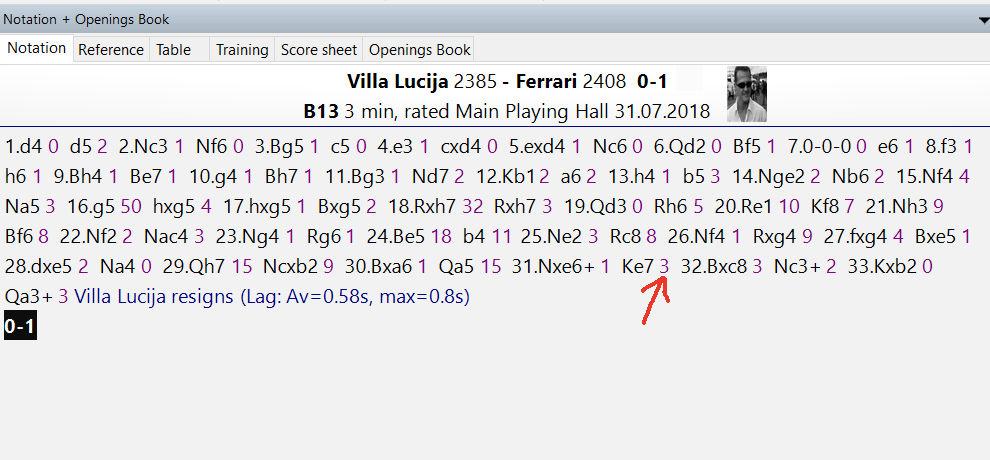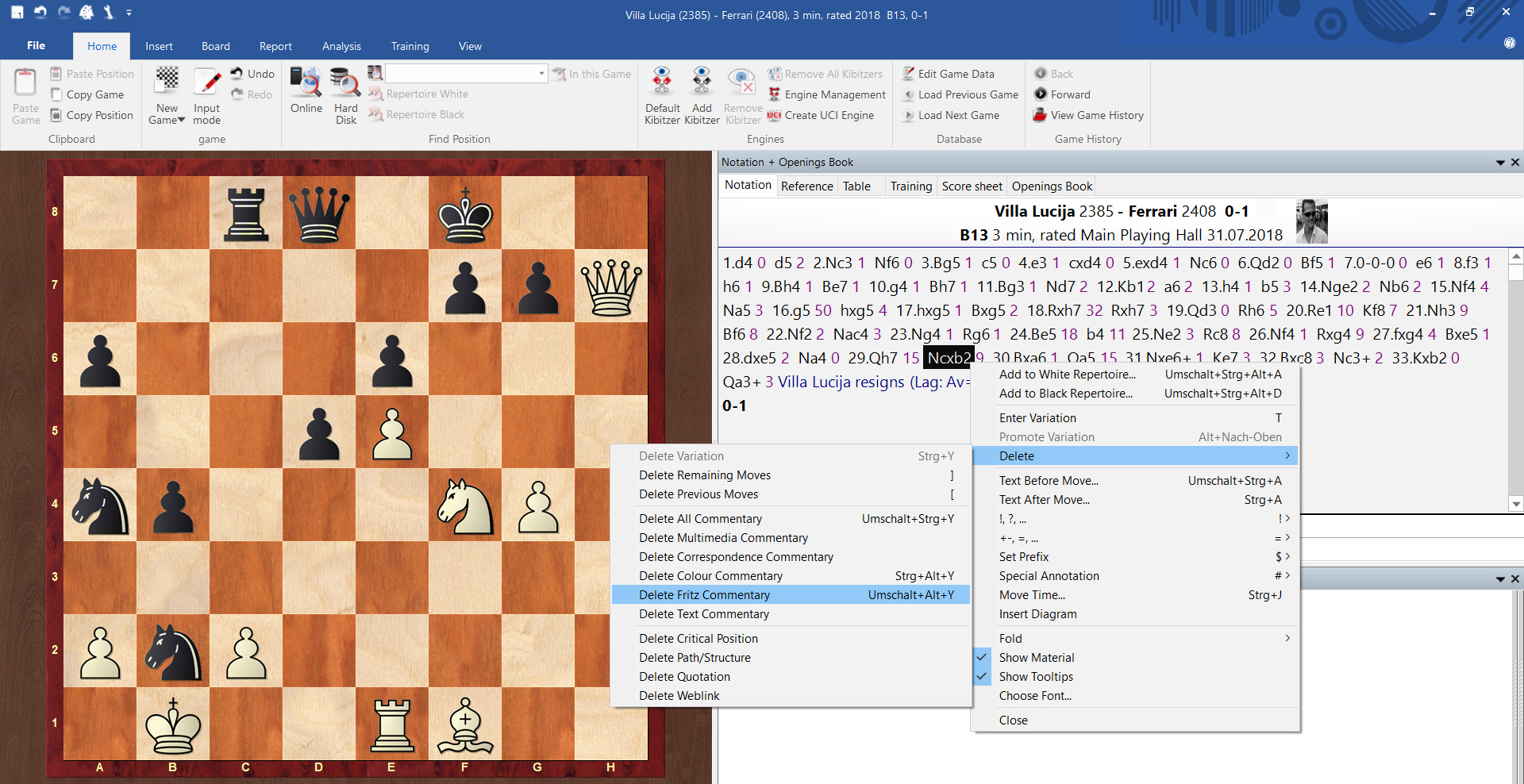


ChessBase is a personal, stand-alone chess database that has become the standard throughout the world. Everyone uses ChessBase, from the World Champion to the amateur next door. It is the program of choice for anyone who loves the game and wants to know more about it.
All games played on play.chessbase.com are automatically saved in the MyInternetGames database. When you later bring the games into your board window you see that each move in the notation has a number.

Blitz game on the server (click or tap to enlarge)

Why does every move have a number?
The numbers after the moves indicate how much time you spent on the move. This might be useful information when you analyse the game.
ChessBase Account Premium annual subscription
At the airport, in the hotel or at home on your couch: with the new ChessBase you always have access to the whole ChessBase world: the new ChessBase video library, tactics server, opening training App, the live database with eight million games, Let’s Check and web access to playchess.com
But if you do not want to know how much time you spent on your moves you can easily delete the numbers - and all other comments and variations.

"Delete" → "Delete Fritz Commentary" (click or tap to enlarge)
A right-click with the mouse gives you the options to work with the notation. Select "Delete" → "Delete Fritz Commentary" to remove the "numbers" — and all other commentary and analyses — from the notation. Or press Shift + Ctrl + Y.
Note: If you accidentally deleted or entered something you do no longer want you can undo your actions with Ctrl + Z — if you have not yet saved the game.
| Advertising |